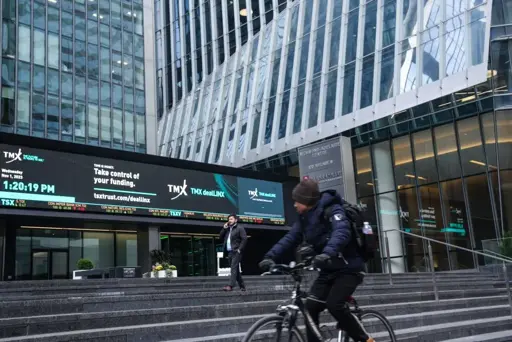Publicly traded companies could have been forced to disclose how climate change would disrupt their business plans, but those efforts were recently brought to a halt by Canadian financial regulators.
This means that, for the foreseeable future, investors and the public will be armed with less information when determining whether these companies have a real plan to deal with the climate crisis — or are relying on environmentally disastrous business-as-usual scenarios.
The move is a win for some of Canada’s largest oil and gas companies that are listed on the Toronto Stock Exchange and have spent years fighting some of the transparency proposals financial regulators have put forward.
Ideally, move to a credit union. Local, ethical, cheaper, and better in every way.
I use Meridian in Ontario and OMISTA in NB and they’ve both been an absolute treat to bank with.
Way better customer service with Meridian than TD or CIBC which I’ve used prior.
Move to EQ Bank, who gives 4% interest on cash you hold. Which is actually fair.
A paltry 10k is 400$ a year, which adds up.
Go ahead and invest in companies that do disclose their emissions. But every ounce of energy produced will be consumed globally, the only factor is who gets to consume it, your standard of living is how much energy you personally get to use.
If you really want an abundant standard of living, that prevents green politician from being voted out, and to lower emissions you should petitioning for nuclear power. Every wind turbine and solar panel needs backup power to deal with the sinusoidal nature of wind and sun, or even hydro power.
No, it all stems from the owner class’es pursuit for ever increasing profit. We were happy driving half-sized cars and trucks 15 years ago. We didn’t ask for them to double in size. The automotive industry needed to generate higher profits demanded by their major shareholders and they figured they could achieve that by upsizing vehicles and charge disproportionately more than the increased cost. And this touches just one sector. And then there’s the humongous CO2 personal expenditures of the top of the owner class.
Blaming corporations for demand is silly, Tesla and Musk arent any less greedy than Ford. These company go after demand, its consumers that want SUV and trucks.
Also our monetary policy demands 2% inflation, and they will QE their way to consumption to get it. So the main thing driving consumerism is our government, you want a return to the gold standard or a static money supply if you want less consumption.





